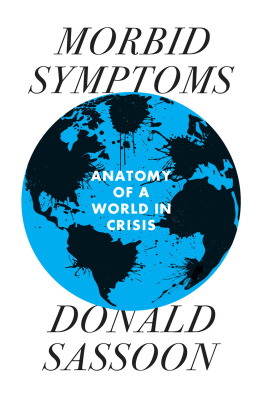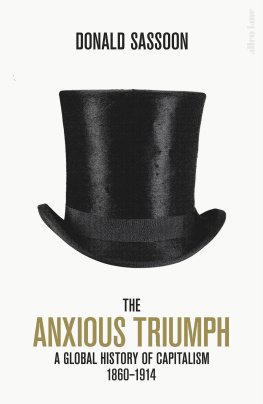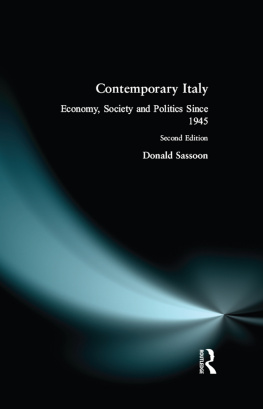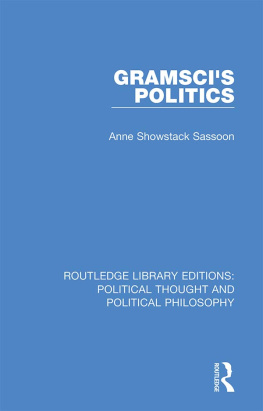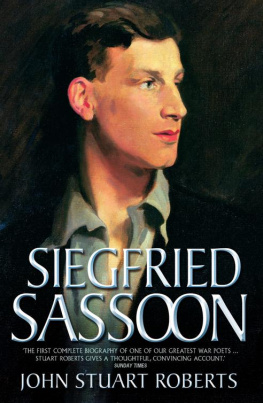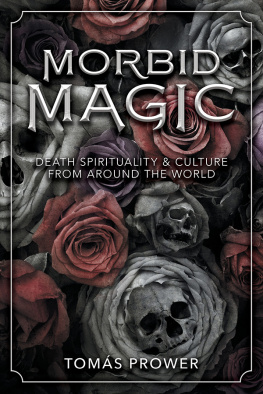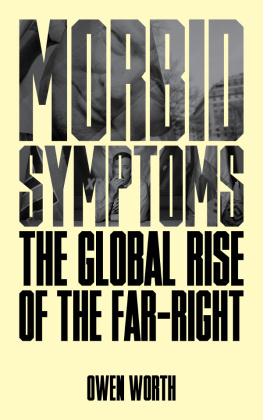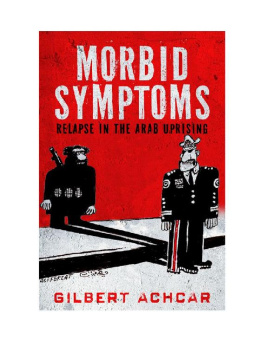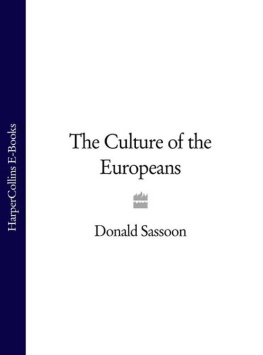Donald Sassoon - Morbid Symptoms
Here you can read online Donald Sassoon - Morbid Symptoms full text of the book (entire story) in english for free. Download pdf and epub, get meaning, cover and reviews about this ebook. year: 2021, publisher: Verso Books, genre: Politics. Description of the work, (preface) as well as reviews are available. Best literature library LitArk.com created for fans of good reading and offers a wide selection of genres:
Romance novel
Science fiction
Adventure
Detective
Science
History
Home and family
Prose
Art
Politics
Computer
Non-fiction
Religion
Business
Children
Humor
Choose a favorite category and find really read worthwhile books. Enjoy immersion in the world of imagination, feel the emotions of the characters or learn something new for yourself, make an fascinating discovery.
- Book:Morbid Symptoms
- Author:
- Publisher:Verso Books
- Genre:
- Year:2021
- Rating:3 / 5
- Favourites:Add to favourites
- Your mark:
- 60
- 1
- 2
- 3
- 4
- 5
Morbid Symptoms: summary, description and annotation
We offer to read an annotation, description, summary or preface (depends on what the author of the book "Morbid Symptoms" wrote himself). If you haven't found the necessary information about the book — write in the comments, we will try to find it.
Morbid Symptoms — read online for free the complete book (whole text) full work
Below is the text of the book, divided by pages. System saving the place of the last page read, allows you to conveniently read the book "Morbid Symptoms" online for free, without having to search again every time where you left off. Put a bookmark, and you can go to the page where you finished reading at any time.
Font size:
Interval:
Bookmark:

Morbid Symptoms
Morbid Symptoms
Anatomy of a
World in Crisis
Donald Sassoon

First published by Verso 2021
Donald Sassoon 2021
Hope (1886), George Frederic Watts, presented to the Tate 1897 (see p. 237)
All rights reserved
The moral rights of the author have been asserted
1 3 5 7 9 10 8 6 4 2
Verso
UK: 6 Meard Street, London W1F 0EG
US: 20 Jay Street, Suite 1010, Brooklyn, NY 11201
versobooks.com
Verso is the imprint of New Left Books
ISBN-13: 978-1-83976-145-4
ISBN-13: 978-1-83976-148-5 (US EBK)
ISBN-13: 978-1-83976-147-8 (UK EBK)
British Library Cataloguing in Publication Data
A catalogue record for this book is available from the British Library
Library of Congress Cataloging-in-Publication Data
Names: Sassoon, Donald, 1946author.
Title: Morbid symptoms: an anatomy of a world in crisis / Donald Sassoon. Description: First edition hardback. | London; New York: Verso, 2021. | Includes bibliographical references and index. | Summary: In this geopolitical study, historian Donald Sassoon paints an unforgettable picture of our galloping descent into political barbarism, mixing blunt expos and classical references with an astonishing array of data Provided by publisher.
Identifiers: LCCN 2020037913 (print) | LCCN 2020037914 (ebook) | ISBN 9781839761454 (hardback) | ISBN 9781839761485 (ebk) Subjects: LCSH: Geopolitics United States. | Geopolitics Europe. | Political corruption United States History. | Political corruption Europe History. | United States Politics and government. | Europe Politics and government.
Classification: LCC JC319 .S347 2021 (print) | LCC JC319 (ebook) | DDC 327.101 dc23
LC record available at https://lccn.loc.gov/2020037913
LC ebook record available at https://lccn.loc.gov/2020037914
Typeset in Sabon by MJ & N Gavan, Truro, Cornwall
Printed in the UK by CPI Group (UK) Ltd, Croydon CR0 4YY
La crisi consiste appunto nel fatto che il vecchio muore e il nuovo non pu nascere: in questo interregno si verificano i fenomeni morbosi pi svariati.
Antonio Gramsci
Contents
T hanks to various friends who read the manuscript, made suggestions, and corrected mistakes: above all, Marina Lewycka, but also Lauro Martines, Ilaria Favretto, Vassilis Fouskas, Stella Tillyard, Leonardo Clausi, Paul Auerbach, and my old friend Ivo Galante. Thanks also to Sam Cohn for guidance on Machiavelli and the morbid symptoms of the fourteenth century.
I became aware at a very young age that history (unlike maths) was not the same everywhere. It happened that I started my primary school in Paris at a time when every French schoolchild was told that our ancestors were the Gauls. The textbook we used contained a picture of the Gallic leader Vercingetorix (the inspiration for the famous comic-strip character Asterix, created in 1959), who had defied the Roman conquerors. He was defeated by Julius Caesar at the battle of Alesia, and then taken to Rome as a prisoner, paraded through the streets, and executed. We were all full of sympathy and pity for the man in chains dragged behind the chariot of the nasty conqueror.
A couple of years later, in 1954, my parents moved to Milan and I found myself in an Italian primary school. Reassuringly, the multiplication tables were the same, but in the history section of our textbook there was no mention of the Gallic hero. I asked the teacher about Vercingetorix. After a moment of hesitation, she said Ah, si, Vercingetorige, adding oh, just one of the many barbarians crushed by the might of Caesars Roman legions. I was impressed: a national hero in France was almost unknown in Italy, a neighbouring country, where the brute who had him in chains was celebrated.
That was the best history lesson of my life. Since then I have remained suspicious of national assumptions, not from any great personal merit, but from my life experience. As a Jew, born in Egypt, with a British passport (obtained presumably for colonial reasons by my ancestors), educated in France, then in Italy and later in the UK and the US, I found it easier than most to avoid falling prey to national mythologies, including Jewish ones.
Though I have always tried to write for a wide audience, my previous books conformed to what would be regarded as respectable by the academy. History, after all, is a subject of general interest and eminently approachable, unlike most sciences and the more recondite and specialised spheres of literary criticism, philosophy, sociology, or economics.
When people ask me what is the purpose of history? I answer, according to my mood, that history has no purpose at all, that it is just fun, like music or drawing, or, more seriously, that history is something no society, not even the most primitive ones, can do without, since the questions where do we come from? and what happened in the old days? are asked in virtually all societies. Answers are sought and are either found or invented; hence stories, fairy tales, myths, religions and history. More recently, that is to say since the nineteenth century, many historians have generally stopped pandering to the powerful and celebrating their deeds, and tried to provide answers based on solid evidence and a dispassionate analysis of sources. It is of course difficult to be balanced, to abandon ones prejudices and be fair, but one tries, if not always successfully. To achieve this does not simply depend on personal disposition. There must be an environment in which the historian can pursue his or her task without fear. It is obviously easier to be a historian in a democracy than in a society like Stalinist Russia or Nazi Germany, though one can be a good scientist in both. The Soviet Union had good historians, but they were clever enough to steer clear of recent history. The dangers of not taking the correct line on Peter the Great were not as great as those of not taking the correct line on Stalin.
In modern democracies, historians are freer though they do not count for very much (a price well worth paying for freedom). People get their history mainly from novels, films, and television. Politicians often use history as one does a supermarket trolley, picking and choosing whatever seems useful. Historians, with the exception of the few who have mastered the art of communicating on the small screen, must be content to provide the raw material for filmmakers and novelists. Most are thrilled if their books are used in this way. In countries where an emphasis is placed on what the French call the roman national, the founding narrative of the state, there may be problems, but on the whole revisionism (the term for challenging the orthodoxy) is allowed and occasionally prized. The new Irish or Israeli historians, for example, though sometimes subject to vigorous and occasionally vicious criticism from other historians and from some politicians, have not been shot or deported and have not lost their jobs. If anything, trying to liberate the Irish or the Israeli Jews from the founding myths of their respective states has made some of them famous, and deservedly so, since it was a brave thing to do. As a result, it soon became possible to write about the Irish famine as having mainly social and economic causes, and not as something deliberately engineered by the British or callously ignored by them. In Israel it became possible for the so-called new historians, scholars such as Benny Morris, Avi Shlaim, and Ilan Papp, to write that some 700,000 Palestinians were ethnically cleansed in the course of the 1948 war and had not left of their own free will as I was told, years ago, in my Jewish school.
Font size:
Interval:
Bookmark:
Similar books «Morbid Symptoms»
Look at similar books to Morbid Symptoms. We have selected literature similar in name and meaning in the hope of providing readers with more options to find new, interesting, not yet read works.
Discussion, reviews of the book Morbid Symptoms and just readers' own opinions. Leave your comments, write what you think about the work, its meaning or the main characters. Specify what exactly you liked and what you didn't like, and why you think so.

